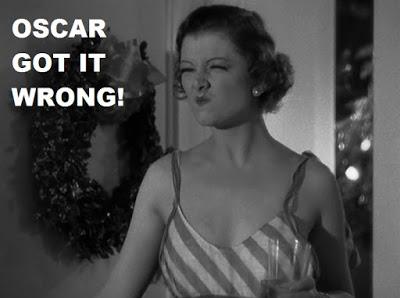Leslie Howard: Berkeley Square
Paul Muni: I am a Fugitive from a Chain Gang
Charles Laughton: The Private Life of Henry VIII (winner)
What’s Missing
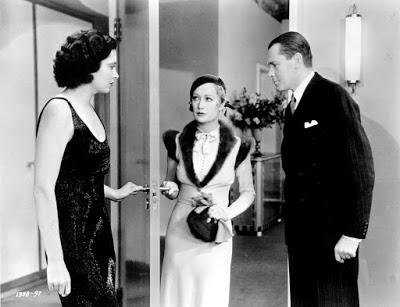
This was the last Oscars that didn’t cover a specific calendar year. As such, it’s the Oscar ceremony that covers the longest period of time, including all films from the entirety of 1933 as well as the back half of 1932. That being the case, there are plenty of possibilities for Best Actor aside from the three that we have. It’s a great era for horror movies, and with a win the previous year for Fredric March in Dr. Jekyll and Mr. Hyde, there are some real possibilities here. To start, there’s Claude Rains and his manic performance in The Invisible Man. A similar manic performance is offered by Leslie Banks in The Most Dangerous Game. Rudolf Klein-Rogge as the title character in The Testament of Dr. Mabuse would have been a fascinating choice. This is also the year for Boris Karloff in The Mummy. The biggest (metaphorically and otherwise) film of the year was probably King Kong, and I want to mention both Robert Armstrong and Bruce Cabot, although both are almost certainly more supporting. It’s also worth saying that Charles Laughton could have easily been nominated for Island of Lost Souls. I’m mildly surprised at the lack of nomination for Clive Brook in Cavalcade, even if I wouldn’t go there. Douglas Fairbanks, Jr. could have swung a nomination for Morning Glory. I would love to see Maurice Chevalier here in Love Me Tonight. Gary Cooper could certainly be here for A Farewell to Arms. John Gilbert in Queen Christina would be an interesting choice if that wasn’t wholly Garbo’s movie. Nils Asther, playing a Chinese military officer, was probably overlooked in The Bitter Tea of General Yen because of racism. The biggest miss for me is Herbert Marshall in Trouble in Paradise.
Weeding through the Nominees
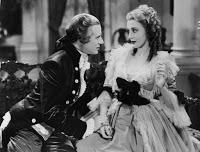
3. I’m on record as saying that I find Leslie Howard about as interesting as dishwater in a beige room. Him being in Berkeley Square did nothing to convince me otherwise. And yet, since his character in this bizarre story is a complete twit, his performance as a complete twit is good enough. Still, it’s hard for me to get excited about a Leslie Howard performance or nomination because he’s a soporific on celluloid. I’d take just about everyone I mentioned above with the possible exception of Clive Brook in his place.
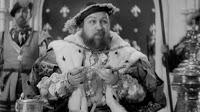
2. I’m just as much on record as being a Charles Laughton fan, and I’m happy that Laughton won an Oscar, but I would have given him the Oscar in 1935 for both Mutiny on the Bounty and Ruggles of Red Gap. His performance here is a good one, and I’m not terribly surprised that he won this Oscar—and sure there’s a desire to hand out an Oscar for a good performance for a good actor, but the Academy needed a little patience. Laughton is always entertaining, and combined with Island of Lost Souls, he did have a damn good 18 months. But he’s not my winner.
My Choice
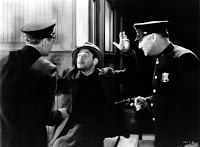
1. This is absolutely Paul Muni’s Oscar for one of his most powerful and devastating performances. Muni’s biggest problem as an actor was also his biggest strength—he was such a chameleon that it was impossible to pin him down or (sometimes) even remember it was him in a particular role. In an expanded group of nominees, Muni would have a much tougher path to victory against Herbert Marshall, and I’d almost certainly put both as winners. But in reality, only Muni was nominated, and so on this blog, that makes him the clear winner.
Final Analysis
